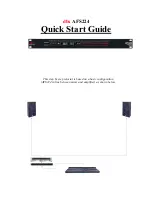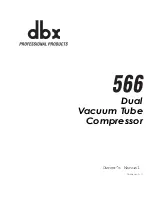
STEP 1
STEP 2
www.ABDOER.com
STORAGE
60
9
5
39
39
5
1-1: Loose the Resistance
Knob (#60) and lower the
Arm Bar (#9) as
illustrated
NOTE: Do not carry/move the product around if the Core
Support Column (Center Post Spring) is not locked in place.
Only lift and/or attempt to move this unit by firmly holding
onto both sides of the seat. Never try to lift or move by
pulling on the Arm Bars or the Core Support Column
(Center Post Spring).
2-1: Remove the
Pin (#39) to
release the Core
Support Column
(Center Post
Spring) (#5)
2-2: Fold down
the Core Support
Column (Center
Post Spring) (#5)
and lock in place
by inserting the
Pin (#39) as
illustrated
www.ABDOER.com
Back to Basics
In order to understand nutrition, you’ve got to first understand protein,
carbohydrates, and fats.
Protein
Protein is the most important element in your diet plan. It provides amino acids
that build muscle, grow hair and nails, and create hormones and enzymes.
Having a protein with every meal provides these essential ‘building blocks,’ as
well as slowing the movement of food in the gastrointestinal tract,
keeping you fuller longer. Good protein options include lean beef filets, extra
lean ground turkey, skinless chicken breasts, egg whites, low-fat tofu, and no-fat
cottage cheese.
Carbohydrates
Now hear this: carbohydrates are not bad for you! In fact, they are essential to
good health and are the number one source of energy used by the body to fuel
metabolism, physical activity and daily bodily functions. But not all carbs are
created equal: Simple carbs are broken down quickly in the body and are to be
eaten sparingly. These include things like mashed potatoes, chips, cola,
crackers, white bread, and fruit juice. Complex carbs contain tons of fiber and
take a long time to break down in the body, keeping you fuller longer and
making your meals more satisfying. These include things like yams, brown rice,
oatmeal, green vegetables, beans, and whole fruits.
Fat
Dietary fat and body fat are not the same things, (though you could swear you
see that peanut butter cup pop up on your thighs an hour after eating it!)
Dietary fat is broken down into fatty acids, which provide energy while
supporting things like your nervous and endocrine systems. However, not all
fats are created equal, either. Saturated and trans fats have been linked to
heart disease and some cancers, so eat foods that contain these fats
sparingly, such as processed packaged desserts, fatty meats, deep fried foods
and chips. Instead, choose heart-healthy, all natural fats to ensure a healthy
body and high energy, such as avocado, raw nuts, olive oil, and fish oil.
Water
Did you know that your body is made up of more than 60% water? Water helps
with digestion, decreases your appetite, rids your cells of toxins and wastes,
and extracts nutrients from your foods. You lose water through perspiration,
breathing, urinating, and other bodily functions, and this loss must be
replenished often. Because water cannot be manufactured by the body, it must
be ingested in the form of beverages or watery foods like fruits and vegetables.
Drink at least 8-12 full glasses of water a day, more if possible, and eat plenty
of fresh fruits and veggies to keep yourself properly hydrated.
Go decaf!
Caffeinated coffee, tea, and soda have a di-
uretic effect on the body, and could be counter-
acting your hydrating efforts. Switch to decaf,
or limit your caffeinated beverages to one per
day for the best results.
Fun fact:
Drink more to retain less!
If you’re feeling bloated, drink water! It sounds
backwards but consider this: Water helps
flush sodium from your system, the element
most responsible for water retention and
bloating.
Proper nutrition is essential for a healthy, fit body. With that in mind, we’ve developed the 4-Week AB-DOer
®
Twist™ Healthy Eating Plan just for you! Follow it and you’re guaranteed to see a difference in your
physical body and energy level!
4-WEEK HEALTHY EATING PLAN
33
12










































